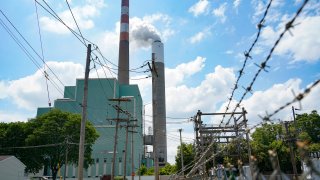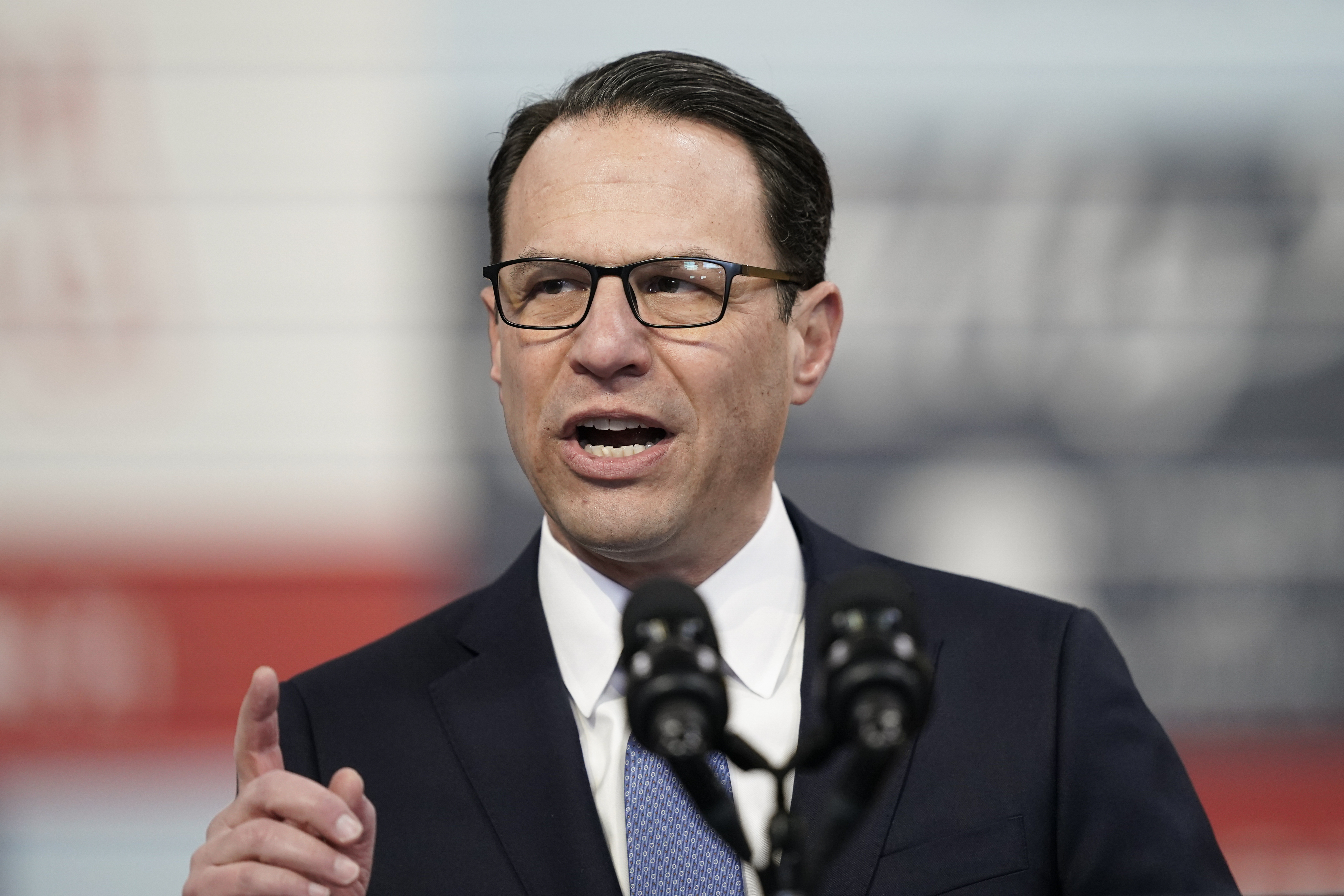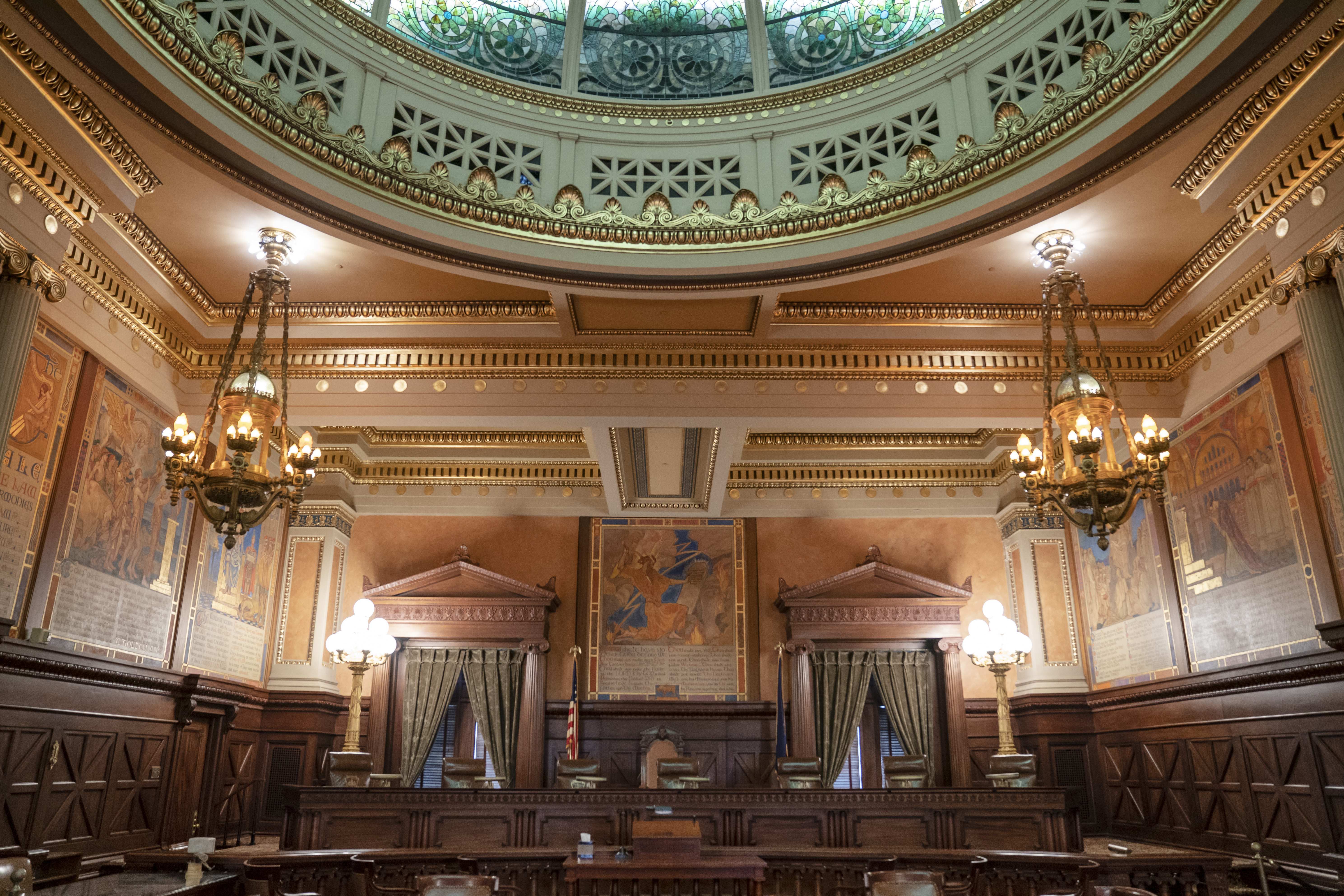
What to Know
- A court says Pennsylvania can't enforce a regulation to make power plant owners pay for their planet-warming greenhouse gas emissions.
- The ruling Wednesday by the Commonwealth Court is another setback for the centerpiece of former Gov. Tom Wolf’s plan to fight global warming. The court temporarily blocked it last year, and the new ruling makes that decision permanent.
- The plan would've made Pennsylvania the first major fossil fuel-producing state to adopt a carbon-pricing program.
Pennsylvania cannot enforce a regulation to make power plant owners pay for their planet-warming greenhouse gas emissions, a state court ruled Wednesday, dealing another setback to the centerpiece of former Gov. Tom Wolf's plan to fight global warming.
The Commonwealth Court last year temporarily blocked Pennsylvania from becoming the first major fossil fuel-producing state to adopt a carbon-pricing program, and the new ruling makes that decision permanent.
The ruling is a victory for Republican lawmakers and coal-related interests that argued that the carbon-pricing plan amounted to a tax, and therefore would have required legislative approval. They also argued that Wolf, a Democrat, had sought to get around legislative opposition by unconstitutionally imposing the requirement through a regulation.
Get Philly local news, weather forecasts, sports and entertainment stories to your inbox. Sign up for NBC Philadelphia newsletters.
The court agreed in a 4-1 decision.
It would be up to Wolf's successor, Democratic Gov. Josh Shapiro, to decide whether to appeal the decision to the state Supreme Court. Shapiro's administration had no immediate comment on the ruling, and Shapiro hasn't said publicly if he would follow through on it.
Republican lawmakers hailed the decision and urged Shapiro not to appeal it. Critics had said the pricing plan would raise electricity bills, hurt in-state energy producers and drive new power generation to other states while doing little to fight climate change.
Opponents also included natural gas-related interests in the nation's No. 2 gas state, industrial and commercial power users and labor unions whose members work on pipelines and at power plants and refineries.
The regulation written by Wolf's administration had authorized Pennsylvania to join the multistate Regional Greenhouse Gas Initiative, which imposes a price and declining cap on carbon dioxide emissions from power plants.
Backers of the plan had called it the biggest step ever taken in Pennsylvania to fight climate change and said it would have generated hundreds of millions of dollars a year to promote climate-friendly energy sources and cut electricity bills through energy conservation programs.
The plan's supporters included environmental advocates as well as solar, wind and nuclear power producers.
Sign up for our Breaking newsletter to get the most urgent news stories in your inbox.



